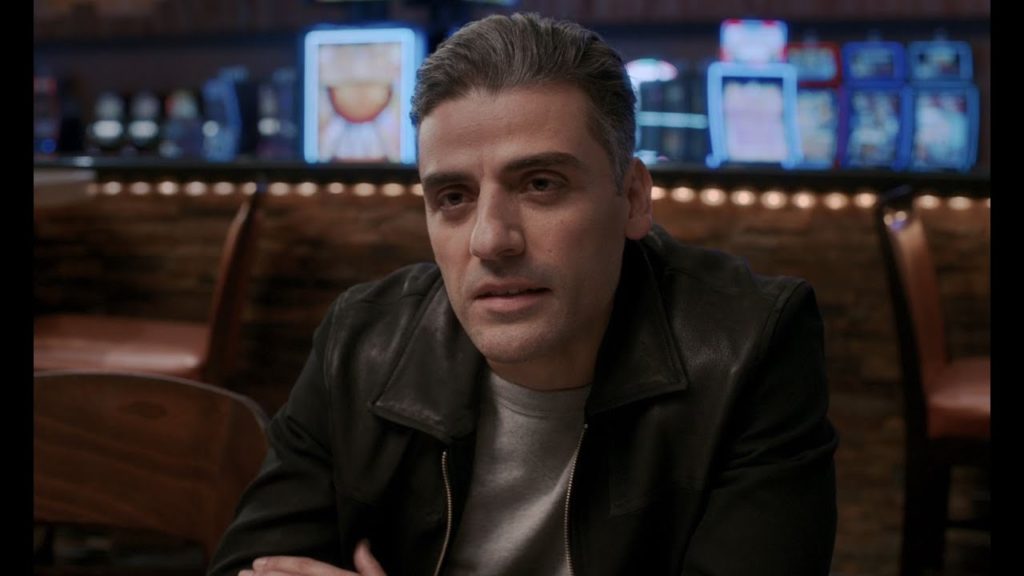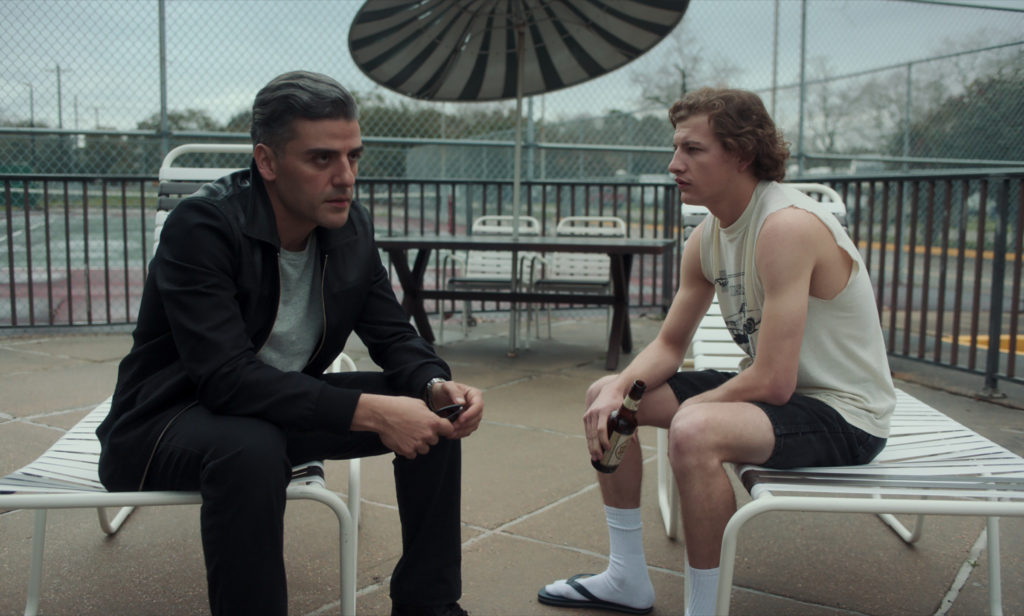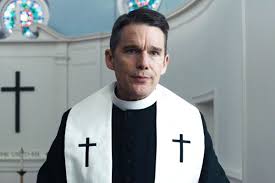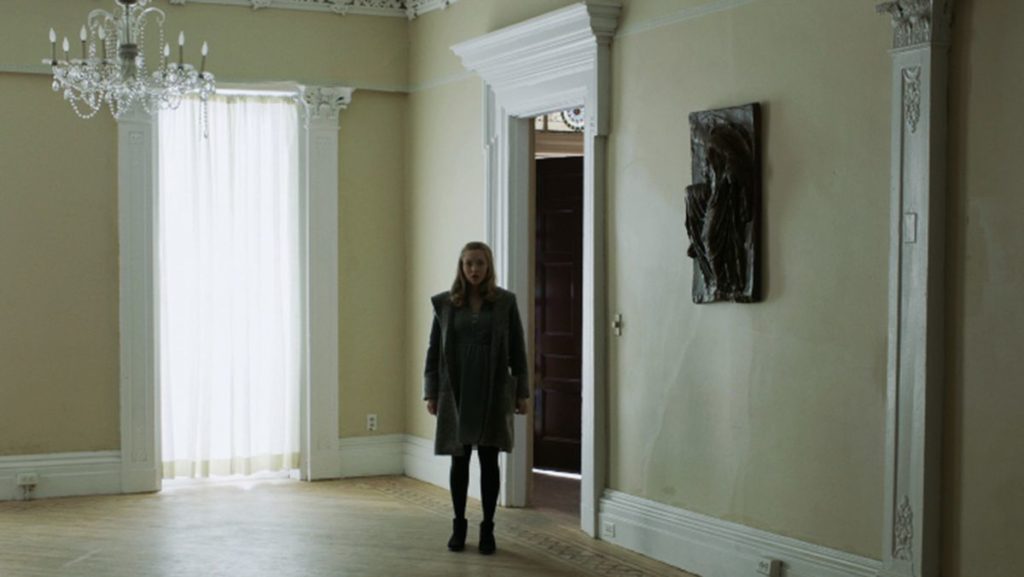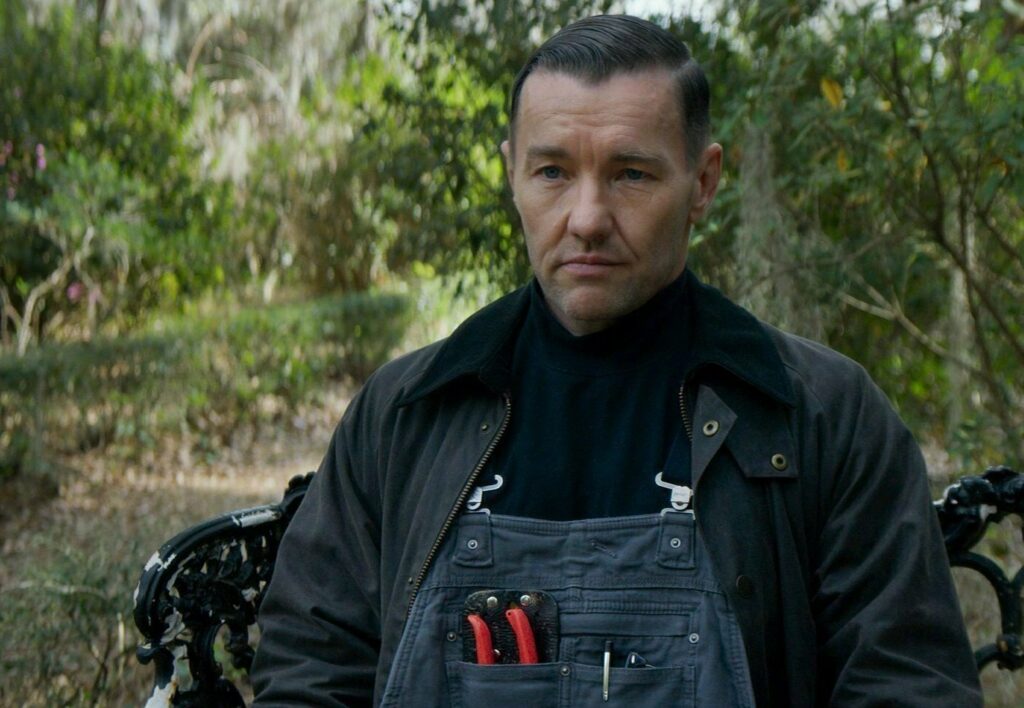
Paul Schrader’s deeply engrossing Master Gardener came out in late May, when my life was rich and complicated, so I’m just getting around to writing about it. Better late than never, because it’s a worthwhile watch.
Joel Edgerton plays Narvel, the titular manager of a grand estate’s extraordinary formal garden. Norma (Sigourney Weaver), the proprietor of the estate, has the means to keep Narval’s operation well-resourced and well-staffed. Narvel combines an encyclopedic knowledge of plants with a meticulous attention to detail. His team of year-round assistants respect him and buy into his leadership. It’s well-ordered, above all, and then Norma asks a “favor” of Narvel that he cannot refuse – to take on her troubled grandniece as an intern.
The grandniece, Maya (Quintessa Swindell), is a puddle of Gen X attitude, but she’s smart enough to know that she needs to put in the time, if not commit fully. Interestingly, Norma hasn’t had a conversation with Maya since she’s grown into adulthood, and puts off their first conversation until well into the internship. Norma is judgy, and didn’t approve of Maya’s late mother. Norma also relishes her power over Maya, Narvel and everyone- and chooses the time and place of each social engagement.
But, back to Narvel – why is he so exacting in his standards, work ethic and expectations of his team? Is he a martinet, a petty tyrant of flowers and mulch? Does he lack perspective, like The Caine Mutiny’s Captain Queeg consumed by the missing strawberries?
It turns out that Narvel has a past.. A shocking past. And running an estate’s formal garden is the last place you would have expected him to be. There were consequences for the bad decisions in Narvel’s previous life, and those consequences are irreversible. Narvel, far more than others, understands how circumstances and events can change lives forever. That’s why he faces every situation so deliberately. He is anything but careless.
Maya, however, has lived a careless life, and her past threatens all of them. In his bad past, Narvel developed skills that equip him face violence now. And now, facing Maya’s problems, he finds a long-denied chance for redemption.
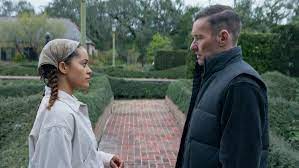
The cast is excellent. Edgerton is prefect as a contained man whose regrets power his discipline and determination – and harnesses his determination so as not to lose a second chance. Sigourney Weaver also wonderfully nails the emotional remoteness of Norma, who is also very contained – until she lapses into a Queen of Hearts caprice. Quintessa Swindell, who I hadn’t seen before, is charismatic, and takes her Maya from an apathetic insouciance to someone who has learned, for the first time, what being fully committed really is.
Master Gardener is a Paul Schrader film. Schrader wrote Taxi Driver and Raging Bull., adapted The Last Temptation of Christ, wrote and directed American Gigolo and Affliction. All very good. All very dark.
Master Gardener is the third movie in Schrader’s late-career, self-described ‘Man In A Room’ trilogy, following First Reformed and The Card Counter. I would name it the “Man with a Code Seeks Redemption” trilogy. When I wrote about The Card Counter, my subtitle was “a loner, his code and his past” – and that would work for Master Gardener, too.
Master Gardener is now available to stream on Amazon, AppleTV, Vudu, YouTube and redbox. As readers have come to expect, I’ve included the trailer below, but I recommend that you don’t watch it because of spoilers; the story is much more impactful when the plot elements unspool as Schrader intended.

